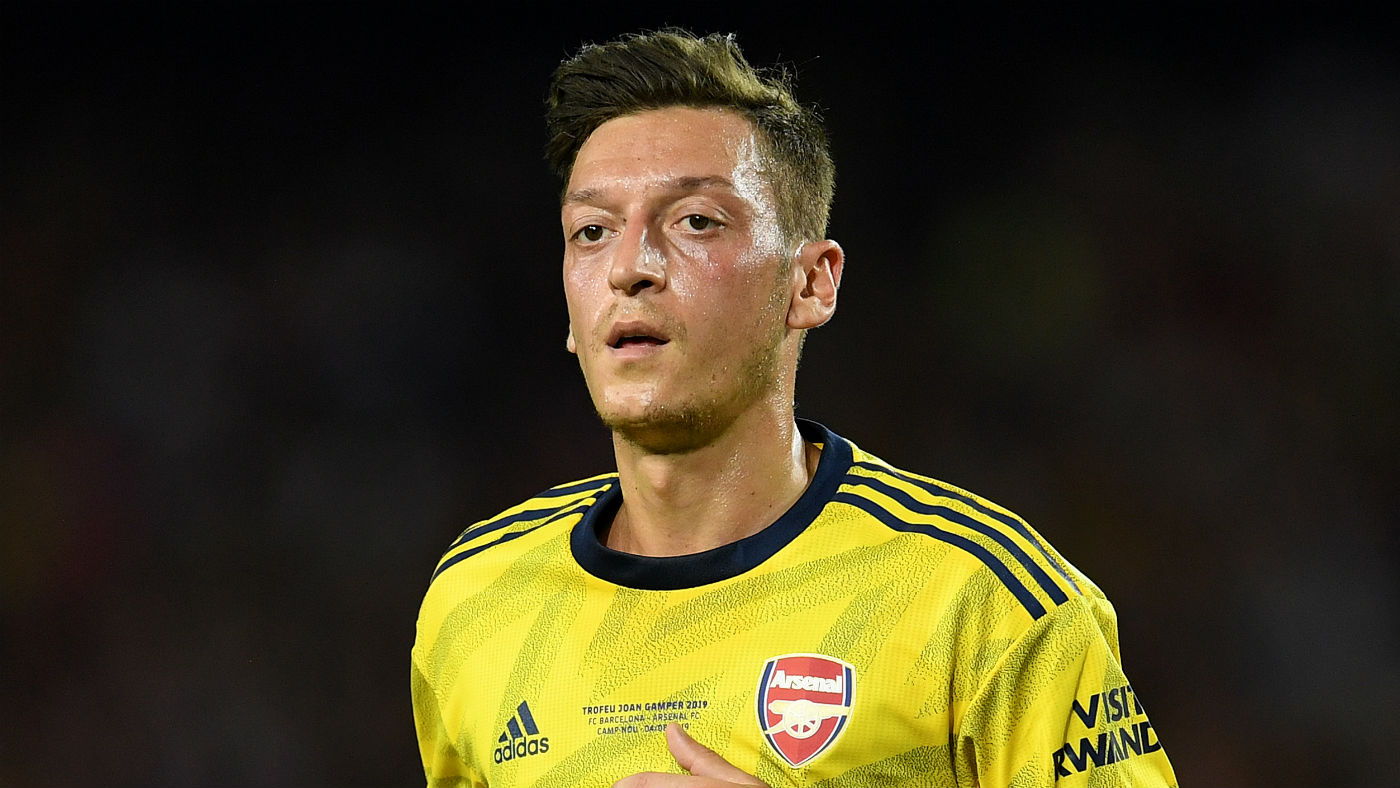Backlash in China over Mesut Ozil's Uighur post
Foreign ministry says Arsenal ace ‘deceived by fake news’ but others come out in support

A free daily email with the biggest news stories of the day – and the best features from TheWeek.com
You are now subscribed
Your newsletter sign-up was successful
Football star Mesut Ozil was “deceived by fake news” and “untruthful remarks” in his social media post about the treatment of Uighur Muslims, China’s foreign ministry spokesman has claimed.
After the Arsenal star called Uighurs “warriors who resist persecution” and criticised both China and the silence of his fellow Muslims in response, Geng Shuang invited Ozil to visit the autonomous Xinjiang region and “have a look” for himself.
Beijing has faced international condemnation for its extrajudicial detentions of more than one million ethnic Uighurs and other Muslim minorities in internment and political re-education camps.
The Week
Escape your echo chamber. Get the facts behind the news, plus analysis from multiple perspectives.

Sign up for The Week's Free Newsletters
From our morning news briefing to a weekly Good News Newsletter, get the best of The Week delivered directly to your inbox.
From our morning news briefing to a weekly Good News Newsletter, get the best of The Week delivered directly to your inbox.
As the backlash in China gathered pace, the state broadcaster removed the Arsenal-Manchester City game from its schedule. The state newspaper, Global Times, described Ozil’s comments as “false” and claimed he had “disappointed” football authorities.
The Chinese Football Association weighed in too, saying Ozil's comments were “unacceptable” and had “hurt the feelings” of Chinese fans.
However, there has also been support for Ozil. After Arsenal distanced the club from their star player’s views, saying it was “always apolitical as an organisation”, many fans protested that the club’s move was a mistake.
The Guardian’s Sean Ingle said the club had raised the “white flag” and argued that Ozil is “in tune with a United Nations panel and human rights groups” on the issue.
A free daily email with the biggest news stories of the day – and the best features from TheWeek.com
Simon Chadwick, a professor of sports enterprise at Salford University who specialises in China, said: “The world is in the midst of an ideological battle: western liberalism versus eastern authoritarianism. And sport is one of the front lines.”
He added that the controversy over Ozil’s post “reveals a great deal about China’s growing power, how it seeks to exercise it, and what it deems to be acceptable and unacceptable” and also “reveals how far the balance of power has tipped away from Europe and towards China”.
–––––––––––––––––––––––––––––––For a round-up of the most important stories from around the world - and a concise, refreshing and balanced take on the week’s news agenda - try The Week magazine. Start your trial subscription today –––––––––––––––––––––––––––––––
-
 Local elections 2026: where are they and who is expected to win?
Local elections 2026: where are they and who is expected to win?The Explainer Labour is braced for heavy losses and U-turn on postponing some council elections hasn’t helped the party’s prospects
-
 6 of the world’s most accessible destinations
6 of the world’s most accessible destinationsThe Week Recommends Experience all of Berlin, Singapore and Sydney
-
 How the FCC’s ‘equal time’ rule works
How the FCC’s ‘equal time’ rule worksIn the Spotlight The law is at the heart of the Colbert-CBS conflict
-
 Epstein files topple law CEO, roil UK government
Epstein files topple law CEO, roil UK governmentSpeed Read Peter Mandelson, Britain’s former ambassador to the US, is caught up in the scandal
-
 Iran and US prepare to meet after skirmishes
Iran and US prepare to meet after skirmishesSpeed Read The incident comes amid heightened tensions in the Middle East
-
 Israel retrieves final hostage’s body from Gaza
Israel retrieves final hostage’s body from GazaSpeed Read The 24-year-old police officer was killed during the initial Hamas attack
-
 China’s Xi targets top general in growing purge
China’s Xi targets top general in growing purgeSpeed Read Zhang Youxia is being investigated over ‘grave violations’ of the law
-
 Panama and Canada are negotiating over a crucial copper mine
Panama and Canada are negotiating over a crucial copper mineIn the Spotlight Panama is set to make a final decision on the mine this summer
-
 Why Greenland’s natural resources are nearly impossible to mine
Why Greenland’s natural resources are nearly impossible to mineThe Explainer The country’s natural landscape makes the task extremely difficult
-
 Iran cuts internet as protests escalate
Iran cuts internet as protests escalateSpeed Reada Government buildings across the country have been set on fire
-
 US nabs ‘shadow’ tanker claimed by Russia
US nabs ‘shadow’ tanker claimed by RussiaSpeed Read The ship was one of two vessels seized by the US military